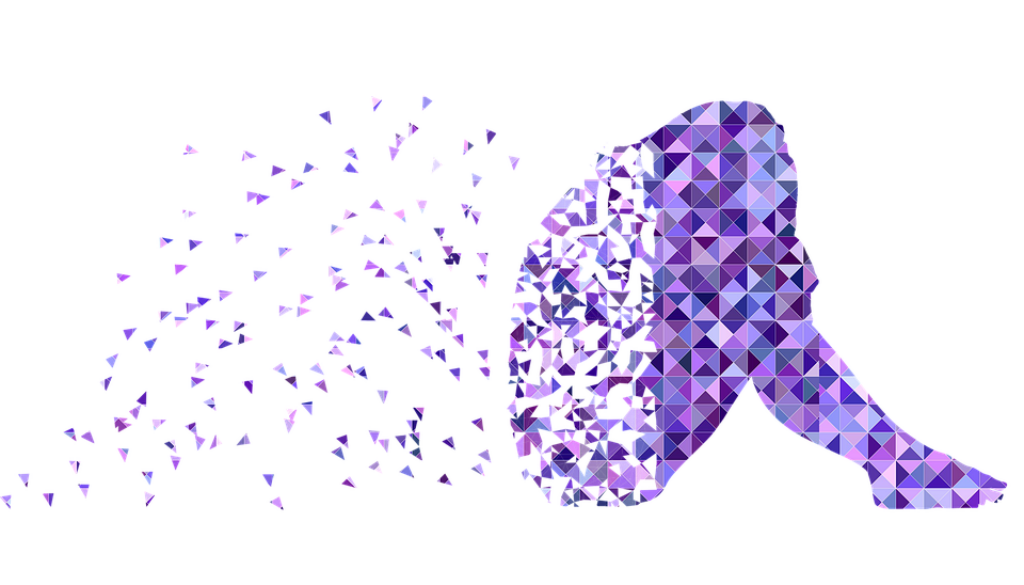Mental Wellness During Challenging Times
By Aparna Mele

These most challenging times have made the issue of mental health more important than ever. The stress and uncertainty of the COVID-19 pandemic have been difficult enough, and now the social distancing requirements have led to profound changes in our daily routines. All of us are faced with daily uncertainty about how long this crisis will last and where it will take us, individually and collectively, and data suggests that many are facing serious challenges related to depression, anxiety and emotional exhaustion.
Taking care of our mental well-being is just as crucial as our physical health during this time. Try these key practices to guard your heart and mind during this crisis.
It is important to be good to your body because mental health starts with physical wellness.
- Make sleep a priority. Give yourself enough time in bed to get the rest you need (typically seven to nine hours). Stick to a consistent sleep schedule as much as possible, resisting the tendency to let your schedule fall apart if you don’t have daily commitments. Build in a technology-free winding down routine for 30 to 60 minutes before bedtime.
- Move every day. Now that our activities are so limited, it is easy to become inactive. Find a way to move. Go for walks or hikes often if you cannot hit the gym or take advantage of online fitness and yoga videos. Consistent physical activity lowers stress and anxiety, improves mood, and strengthens your immune system.
- Nourish your body and mind. Resist the pull toward letting your diet turn to junk during this time. Choose healthy food options like vegetables and fruits and avoid highly processed foods and refined sugar. Limit your alcohol consumption, and avoid too much caffeine, which can aggravate stress and anxiety. A healthy diet strengthens your immune system and physical functionality, which will also improve your overall sense of well-being.
A daily timed structure is critical because your body and brain operate on a 24-hour circadian cycle and need specific activities to happen at predictable times. Routines can be normalizing and help your sense of equilibrium, so establishing a consistent routine is one of the best things you can do for yourself during this period of social distancing. Exposure to natural light is probably the most powerful way to establish a healthy circadian rhythm. If your area is discouraging non-essential time outdoors, at least sit by a window in the morning. Try to eat at consistent times and go to bed and get up at about the same time every day. Carve out time daily for exercise and follow a predictable work schedule, even when working from home. Put it all in your calendar to make it feel more official.
Taking care of your mind too, by practicing how to train your mind in productive ways that support your well-being. Try to squash negative thoughts and instead choose to direct your thinking towards positive things we can control. Why dwell on our struggles when we can instead embrace opportunities to practice gratitude and love? Try to make a habit of noticing all the good things in your lives, rather than dwelling on what is wrong or missing. While this may be hard to do, just imagine how things could be much worse. There is always a silver lining in every difficult situation and acknowledging it and finding ways to feel thanks is one of the most effective ways to guard your mental health.
Stress and tension collect in the body and mind throughout the day and it is important to set aside time religiously to release this energy, which can weigh heavily on mood. Practice exercises that let go of the tension, for example, deep breathing, meditation, yoga, even stretching. Step into nature, unplug from technology, and find inspiration outside where your perspective widens, and your mood generally lifts.
We can generate a sense of meaning when we are able to make a unique contribution and feel connected to something bigger than ourselves. Find a way to be of service every day. Serving is especially important during difficult times like these because it draws you out of a narrow self-focus and self-driven preoccupation with your own struggles. Ask yourself what those around you need and find reward in doing something to improve someone’s life. Our best contribution to society is following all medically mandated guidelines to physically distance and wear masks. Today, our greatest purpose has to do with protecting one another and teaching our children to do the same. While this may feel more distant and less purpose-driven, it is no less significant. When you are stronger, give what you can, and when you need help, don’t be afraid to ask for it.
Focusing on self-growth is a powerful way to regain control of mental health. Trying to gain a greater appreciation for life, enhancing your relationships with others, looking for expanded possibilities, and increasing personal strength are all effective practices to grow mentally and emotionally. Connect with people you love. Look for opportunities every day to let go of others’ shortcomings. Grant yourself some grace. This is a difficult and stressful time as we all learn to adapt to a completely new situation. Give yourself permission to be down or off your normal game. After all, things are very far from normal. But also motivate yourself to learn, develop, and grow. Be grateful to others and be grateful for what you have. Reach out and make connections with people. Remind yourself you will get through this and there will be a new normal on the other side.
Mental health is critically important and cannot be overlooked during these fragile times. While these are traumatic times, they do not have to bring you down. Take care of your physical health. Establish predictable routines. Redirect your thought towards the positive and practice gratitude. Release inner tension. Find ways to help others. Stay connected to others and be attuned to your mutual well-being. Finally, focus on growth and your greater purpose. Your mental health depends on it.
For those who need support, the National Alliance Of Mental Illness (NAMI) helpline is 800-950-NAMI (6264).



